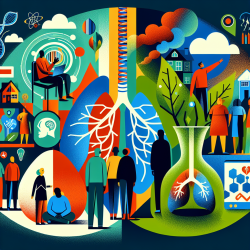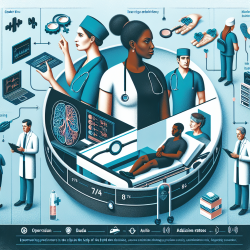The Covid-19 pandemic has been a significant test for individuals, organizations, and governments worldwide. The crisis has highlighted our tendencies to overreact to new health threats due to various behavioral economic factors. Understanding these biases can empower practitioners to improve their responses and make more balanced decisions in the face of uncertainty.
Understanding Behavioral Biases
The research article "Addressing threats like Covid: why we will tend to over-react and how we can do better" delves into the behavioral economic insights that explain our propensity to overreact to serious but low-probability health threats like Covid-19. These insights include:
- Status Quo Bias: People tend to prefer maintaining the current state of affairs, which can lead to an exaggerated response when faced with a new threat.
- Loss Aversion: Individuals are more motivated to avoid losses than to achieve equivalent gains, prompting stronger reactions to potential losses from new threats.
- The Endowment Effect: People value what they already possess more than what they might gain, leading to heightened efforts to protect current conditions.
- Risks as Feelings Hypothesis: Emotional responses can distort risk perceptions, leading to an inflated sense of danger.
- The Certainty Effect: People irrationally prioritize eliminating small risks entirely over reducing larger ones slightly.
Navigating Over-Reaction
The key takeaway for practitioners is the importance of recognizing these biases and implementing strategies to mitigate their influence. Here are some practical steps practitioners can take:
- Acknowledge Biases: Awareness is the first step. By understanding these biases, practitioners can actively work against them in decision-making processes.
- Apply Standard Economic Tools: Utilize cost-benefit analysis and opportunity cost assessments to guide decisions. This structured approach helps ensure resources are allocated efficiently.
- Diversify Responses: Encourage varied responses at different levels (individual, community, organizational) rather than relying solely on top-down government interventions. This allows for adaptive learning and tailored solutions.
- Pursue Further Research: Engage with ongoing research in behavioral economics and public policy to stay informed about effective strategies for managing health threats.
The Role of Practitioners
TinyEYE's online therapy services play a crucial role in supporting schools during such crises. Practitioners must be equipped with the knowledge and skills to address both the psychological and logistical challenges posed by health threats like Covid-19. By applying insights from behavioral economics, practitioners can help schools navigate these challenges more effectively.
The research emphasizes that while government intervention is necessary in addressing externalities (such as the spread of a virus), over-reaction can lead to inefficiencies and unintended consequences. Practitioners should advocate for balanced approaches that consider both immediate health concerns and long-term impacts on well-being and education.
A Call for Continued Learning
This pandemic has been a learning opportunity for all sectors. As we move forward, it is essential for practitioners in education and therapy services to continue exploring how behavioral economics can inform their practices. Engaging with research and participating in professional development opportunities will ensure that practitioners remain at the forefront of effective response strategies.
Addressing threats like Covid: why we will tend to over-react and how we can do better










